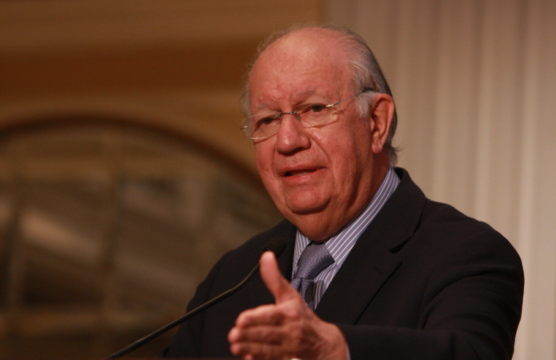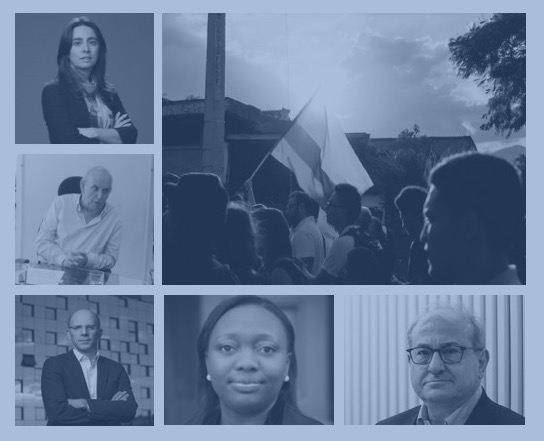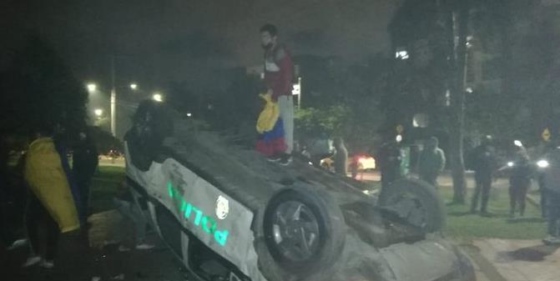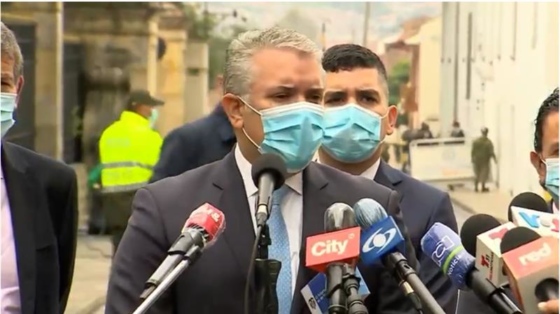
A Time for Action
Latin America inequality gap, economic integration, and infrastructure and education systems were among the issues spotlighted at the XVII Annual CAF Conference.
As Colombia continues to witness a surge in protests and widespread violence in Cali, the Inter-American Dialogue hosted the event “Colombia in Turmoil” on May 20 to examine the root causes and ramifications of the ensuing unrest. Panelists included Alejandro Santos, director of Radio Caracol – Prisa; Paula Moreno, president of Manos Visibles and former minister of culture of Colombia; Maurice Armitage, former mayor of Cali; and Catalina Botero, co-chair of Facebook Oversight Board and expert with Columbia Global Freedom of Expression. The event was moderated by Michael Shifter, president of the Dialogue. This conversation explored how the lack of confidence in the state and political parties, the rise in poverty and unemployment due to the pandemic, and the despair and frustration of Colombia’s youth have culminated in the crisis facing Colombia today.
Alejandro Santos opened the panel by analyzing the absence of political leadership capable of addressing the social, economic, and political complexities of current day Colombia. Santos argued that three crises confront Colombia: the youth crisis, in which 27 percent of Colombians between the ages of 14 to 28 are not working nor studying; a crisis of the middle class, burdened by the economic strains of the pandemic; and a crisis of legitimacy, where an anti-establishment sentiment has intensified nationwide. Santos proposed that alongside these challenges, Colombia now lacks an easily identifiable enemy within the context of national politics and thus, must grapple with its compromised democracy.
Paula Moreno stated that the country is going through an “existential crisis,” underscoring the role of the youth and their discontent in driving the protests. Emphasizing the heterogeneity of Colombian youth protesters, Moreno asserted that they come from various socioeconomic backgrounds and recognize and harness their collective power. However, according to Moreno, the need for racial equality and recognition of the indigenous population in Colombia remains a fundamental component in addressing social inequity. Moreno concluded that Colombia finds itself “in a phase of deconstruction, construction, and reconstruction” and emphasized the role of the United States in providing support, especially with Covid-19 vaccine donations, to help Colombia move towards a more equitable future.
Maurice Armitage reiterated the importance of the youth as it relates to the social unrest while also revealing the economic dimensions of Colombian discontent. As the former mayor of Cali, Armitage highlighted how Cali transformed from a prosperous city into the fourth most impoverished city in the country as a result of the pandemic. The economic challenges facing Colombians, especially among adolescents, has only amplified distrust in the government, demonstrating the repercussions of Colombia’s “vicious cycle of poverty.” Furthermore, as Santos indicated earlier in his comments, the stifling of the economy because of road blockades established during the protests suggest lasting economic consequences for the nation.
Lastly, Catalina Botero reinforced the importance of reestablishing credibility in Colombia’s democracy while shedding light on the previous 2019 protests as an antecedent for the current unrest in Cali. Her remarks regarding the need for police reform and the elimination of governmental impunity illustrate the complexities of structural violence in Colombia. Botero also highlighted the role of social media in facilitating Colombian youth’s successful efforts to organize and protest. Lastly, Botero recognized protesters’ demands for an international, independent commission to investigate ongoing human rights violations in Cali.
Considering the multifaceted economic, political, and social realities of Colombia, the path forward remains uncertain. However, the insights from these four expert panelists demonstrate the need for a more robust political leadership, improved economic opportunities for youth, and governmental reforms in Colombia. As Catalina Botero stated, “[the Colombian people] need to reestablish confidence in a state that has permanently violated its agreements.” The panelists also emphasized the urgent need to lift the blockades to address the country’s economic paralysis. As the unrest continues, the question remains on how the country and its leaders can work to establish a meaningful dialogue between relevant parties to build sustainable peace.
Youths who neither work nor study are fueling Colombia’s street protests
(May 21, 2021 – BNamericas)
¿Qué hay detrás de la revuelta de Colombia?
(May 24, 2021 – El Periódico)
(May 24, 2021 – El Tiempo)
Los jóvenes contra el ‘statu quo’
(May 25, 2021 – El Tiempo)
Colombia, un llamado de alerta
(May 26, 2021 – La Nación)
Latin America inequality gap, economic integration, and infrastructure and education systems were among the issues spotlighted at the XVII Annual CAF Conference.
A Latin America Advisor Q&A featuring experts’ viewpoints on the motivations behind and implications of recent protests in Colombia.
A Latin America Advisor Q&A featuring experts’ viewpoints on massive social unrest and the state’s heavy-handed response in Colombia.
 Main Photo: Lisa Ferdinando / Flickr / CC BY-NC-ND 2.0
Main Photo: Lisa Ferdinando / Flickr / CC BY-NC-ND 2.0

